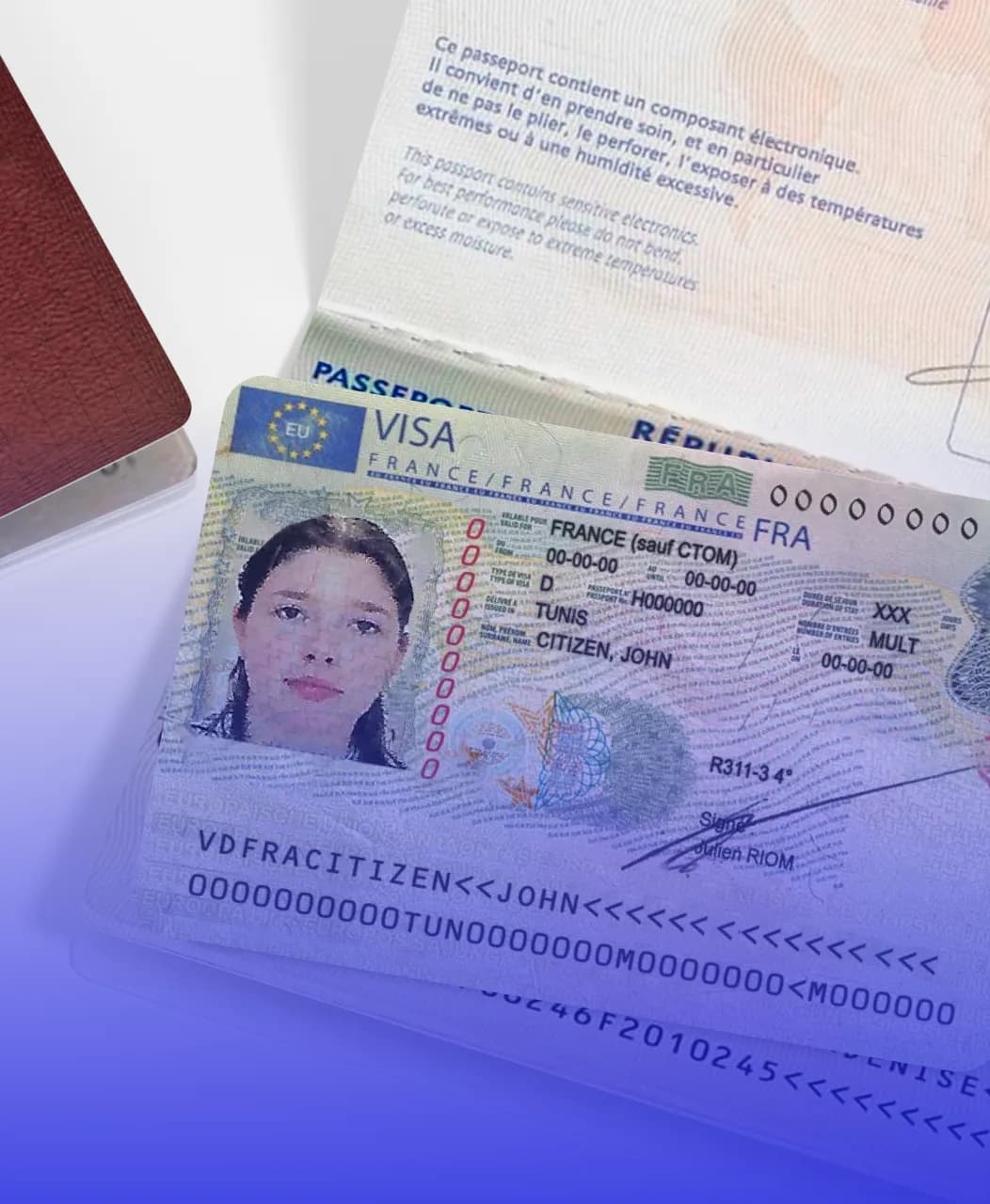Open a Bank Account in Spain: The Complete Guide for Expats
The complete guide to opening a bank account in Spain. Discover the steps for non-residents, the best banks (traditional and online), and the required documents.

International Mobility Expert

Opening a local bank account is one of the first steps to anticipate when moving to Spain. Although it is not legally mandatory, having a Spanish account greatly simplifies daily life. In this guide, we explain why opening an account in Spain can be beneficial, how to do it even as a non-resident, what documents to prepare, how to choose the most suitable bank (traditional bank or fintech like N26/Revolut), the steps to open the account, the fees and conditions to be aware of, as well as a final tip to optimize your finances between your home country and Spain.

Why open an account in Spain?
Although you could technically live in Spain with a foreign account, a Spanish bank account is highly recommended to avoid many complications. Indeed, many daily services depend on it: internet providers, mobile operators, landlords, and local administrations often require a Spanish IBAN for direct debits of bills and rent. Moreover, if you work or receive a pension in Spain, your employer or pension fund will generally need to transfer funds to a local account (IBAN starting with ES). for any real estate project (purchase, loan), a local account is also essential.
In summary, opening a bank account in Spain offers several advantages:
- Facilitated local payments: pay your current expenses (rent, water, electricity, internet, local taxes, etc.) by direct debit without international fees.
- Receiving income in Spain: collect your salary, pension, or local rent directly into a Spanish account.
- Savings on bank fees: avoid international transaction fees and currency exchange commissions.
- Access to credit and local financial services: applying for a mortgage or consumer loan will be much easier with a local account.
- Financial credibility and administrative integration: a local account is not just a formality, it is a key element of a successful settlement.
Can you open an account as a non-resident?
Yes. Foreigners non-resident in Spain can absolutely open a bank account. The procedure and associated services will differ slightly from a "resident" account.
- Bank account for non-residents: Intended for people who do not yet have a Spanish residence certificate. This account ("cuenta para no residente") is ideal for newcomers waiting for their NIE or their residency.
- Bank account for residents: This is for people who have obtained their NIE and their residence certificate in Spain (empadronamiento). This account generally offers more services and more advantageous conditions.
Keep in mind that each bank has its internal rules: so inquire on a case-by-case basis and do not hesitate to shop around.
Documents required by banks
Before your appointment, prepare the following file:
List of documents to provide
- Valid ID: Passport or national identity card.
- Identification number in Spain: Your NIE if you are a resident, or a Non-Resident Certificate.
- Proof of address: Utility bill, rental contract, or even proof from your home country for non-residents.
- Proof of professional situation: Employment contract, pay slips, student card, etc.
Remember to bring the originals and photocopies. For a foreign official document, a sworn translation may be necessary in some cases.
Besoin d'aide pour ouvrir un compte bancaire en Espagne ?
Notre équipe d'experts vous accompagne pour ouvrir votre compte bancaire espagnol rapidement et simplement.
Plus de 350 comptes ouverts avec succès
How to choose your bank?

The choice of bank in Spain depends on your needs: do you prefer a large traditional bank with branches, or a modern and cheaper online bank? Compare the offers paying attention to the following criteria:
- Customer service in English or your language.
- Account management and bank card fees.
- Commissions on withdrawals and international transfers.
- Income conditions to benefit from free services.
Popular traditional banks
- Banco Santander: The largest bank in Spain, with a strong international presence.
- BBVA: Known for its excellent mobile application and easy-to-access online accounts.
- CaixaBank (HolaBank): Offers specific multilingual support for expats.
- Banco Sabadell: Very popular with expats for its adapted services and assistance in English/French.
Online banks (Neobanks)
- N26: A 100% mobile, free bank that now provides Spanish IBANs.
- Revolut: Ideal for multi-currency transfers with competitive exchange rates, it also offers Spanish IBANs.
Besoin d'aide pour ouvrir un compte bancaire en Espagne ?
Notre équipe d'experts vous accompagne pour ouvrir votre compte bancaire espagnol rapidement et simplement.
Plus de 350 comptes ouverts avec succès
Account opening procedure
Opening an account can be completed in a single visit to a branch if your file is complete. Here are the typical steps:
- Appointment or online process: Most banks require a branch visit for non-residents. Make an appointment in advance.
- Presentation of documents: Provide the required supporting documents (passport, NIE, etc.).
- Signing the contract: Check the conditions carefully (fees, limits) before signing the "contrato de cuenta".
- Obtaining the IBAN and card: The IBAN is provided immediately. The bank card is either given at the branch or sent by mail within a week.
- Activation of services: Activate your account, your card, and your online banking access to start managing your finances.
Costs, conditions and tax aspects
Pay attention to bank fees. Many banks charge account maintenance fees (around €5/month) if you do not domicile your income. Neobanks are often free.
In terms of security, your deposits are protected by the Spanish Deposit Guarantee Fund up to €100,000 per person per bank.
Tax implications to know
- Declaration in your home country: If you are a tax resident of another country, you must declare your Spanish account to your tax authorities (e.g., form 3916 for France).
- Wealth tax in Spain: You are only concerned if your assets in Spain exceed €700,000. To learn more, consult our article on taxation in Spain.
- Model 720: If you become a Spanish tax resident, you will have to declare assets and accounts held abroad if their value exceeds €50,000.
Tip: Keep your account in your home country
Do not close your bank account in your home country. It will be useful for managing your residual expenses there. To transfer money between your accounts, use services like Wise or Revolut to minimize fees.
Besoin d'aide pour ouvrir un compte bancaire en Espagne ?
Notre équipe d'experts vous accompagne pour ouvrir votre compte bancaire espagnol rapidement et simplement.
Plus de 350 comptes ouverts avec succès
Frequently Asked Questions (FAQ)
Can I open a bank account in Spain without being a resident?
Yes, absolutely. Most Spanish banks offer accounts for non-residents ('cuenta para no residente'). You will generally need your passport and a 'Certificado de No Residente', which the bank can often obtain for you.
What are the key documents to open an account in Spain?
The essential documents are: a valid ID (passport or national ID for Europeans), your NIE (or a non-resident certificate), proof of address (even from your home country), and sometimes proof of your professional situation (employment contract, etc.).
What is the best bank for an expat in Spain?
It depends on your needs. Traditional banks like BBVA, Santander, or CaixaBank (HolaBank) offer in-branch service and deals dedicated to expats. Online banks like N26 or Revolut are often free and ideal for 100% mobile management, and now offer Spanish IBANs.
Do I have to declare my Spanish account to my home country tax authorities?
Yes. If you are a tax resident of another country, you are usually required to declare any foreign accounts, including your Spanish account, each year. Check your local tax regulations for the specific forms and rules. Failure to do so can result in fines.

